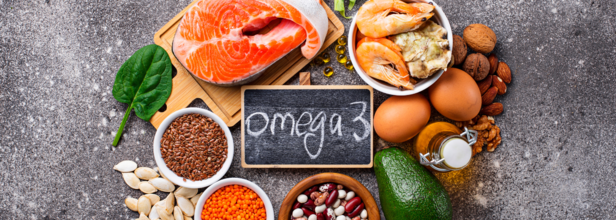
Credits: Canva
Taking Omega-3 Supplements Can Slow Biological Aging
A common battle today for everyone is to stop premature aging. While aging in itself is a natural process, due to environmental hazards, and many other reasons, one being, of course the long covid, aging is now too common of a word for everyone. However, there is a ray of hope. Scientists have found that consuming omega-3 supplements could prevent aging-related issues. Published in Natural Aging, the clinician-scientists Heike Bischoff-Ferrari and geroscientist Steve Horvath showed that these supplements, along with vitamin D supplements, over a three-year period slowed biological aging by three to four months. This is also, when this consumption is combined with exercise.
Horvath said that he does this everyday with his morning coffee. "I practise what we publish," he said.
What is Biological Aging?
Biological aging is measured at a molecular level, says the study. People of the same chronological age can have faster or slower age-related decline depending on their health. While three to four months of slowing down of biological age sounds small, it can actually be an important public health benefit. Bischoff-Ferrari told the Nature that it could reduce the prevalence of some age-related health conditions.
How was the study conducted?
The study analyzed data from the DO-HEALTH trial on the effects of these supplements combined with exercise in older people. This took place across five European countries from 2012 to 2014. The researchers then reviewed the data on more than 700 people over the age of 70 who were either given placebo or omega-3, vitamin D and exercise alone or in combination. Blood samples taken from the participants at the start and end of the study were then used to analyze the four biological clocks.
ALSO READ: How Omega-3 Fish Oil Affects Your Mental Health: Everything You Need To Know
A biological clock known as PhenoAge revealed that older adults who took 1 gram of polyunsaturated omega-3 fatty acids (sourced from algae) over three years effectively slowed their biological aging by several months. The benefits were even greater when combined with 2,000 IU of vitamin D daily and 30 minutes of exercise three times a week, collectively reducing biological aging by 2.9 to 3.8 months.
Even on its own, omega-3 was found to slow biological aging across three of the epigenetic clocks analyzed by researchers.
What Are The Sources OF Omega-3 fatty acids?
Salmon: Salmon is one of the most nutrient-dense foods available and a top source of omega-3 fatty acids. It is rich in both EPA (eicosapentaenoic acid) and DHA (docosahexaenoic acid), two critical types of omega-3s. Besides, salmon offers many essential nutrients, including vitamin D, vitamin B12, and selenium. Some research findings reveal that consuming salmon regularly will lower your risks for heart diseases, dementia, and mental problems, like depression. Salmon is indeed the epitome of versatility. Salmon may be grilled, baked, smoked, or poached, but will fit into almost any diet.
Omega-3 content: 2,150 mg of EPA and DHA (combined) per 3.5 oz (100 g) serving.
Cod Liver Oil: Although technically a supplement, cod liver oil deserves mention for its exceptional concentration of omega-3s.
Extracted from the liver of cod fish, this oil is an incredibly efficient source of essential omega-3 fatty acids. It is also loaded with vitamins A and D. One tablespoon of cod liver oil delivers 170% of the daily recommended value of vitamin D and 453% of vitamin A. It should be consumed in moderation, though as excess vitamin A can cause damage to your body. Cod liver oil has been shown to promote heart health, even brain functioning, and improve bone and immune system response.
Oysters: Oysters are a popular shellfish and are an excellent source of zinc, copper, and vitamin B12. They are also high in omega-3 fatty acids. They can be consumed raw, grilled, or baked and provide the best option for those looking for a nutrient-dense appetizer or main dish. Nutritionally, oysters are potent due to their combination of omega-3s and essential trace minerals, which help with heart health, immunity, and recovery from fatigue.
Contains omega-3 content: 500 mg per 3 oz serving
Other sources that you can include in your daily diet:
- Fish and seafood
- Nuts and seeds, such as flaxseeds, chia seeds, and walnuts
- Plant oils, such as flaxseed oil, soybean oil, and canola oil
- Fortified foods, such as eggs, yogurt, juices, milk, etc.
© 2024 Bennett, Coleman & Company Limited

